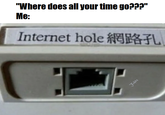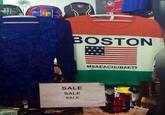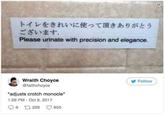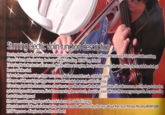Engrish
About
Engrish is internet slang used to describe esoteric English texts translated from East-Asian languages like Chinese, Japanese and Korean. While it is also applicable in spoken English, most examples of Engrish can be found in the everyday urban landscape of major cities in Asia, where public signs are displayed in English to accommodate Western tourists. Note: Engrish can only be used to describe Asian to English translations. For the translation of English to Asian see Japlish (Nihonglish).
Etymology
The term "Engrish" comes from the fact that some Asian languages do not make concrete distinctions between L and R sounds. Other languages do have a consonant that is roughly somewhere in between these two sounds, but whether this translates to L or R in English depends on the situation. As a result, Asian speakers who learn English as a second language later than childhood typically have difficulty in hearing and producing "L" and "R" accurately.
Origin
While the humorous concept of Engrish may as well precede the history of Internet altogether, it was first introduced to the Western world during the influx of Japanese videogame imports in the 1980s. It was first introduced as a unique genre of internet humor in 1996, when Steve Caires, an American expat living in Tokyo, began posting pictures of poorly translated commercial signs and designs through his blog. His blog was hosted at various servers like lumine.net[12] before formally launching under the domain Engrish.com[1] in 1999.
Spread
As early as on November 30th, 2000, the concept began to spread across other fields of interest, most notably through Engrish translations of the epic saga Lord of the Rings published via Lake Evindum.[13] On August 18th, 2001, a Yahoo Group[11] called "The Official Engrish Club" was formed, which has gained over 700 members and remains active (as of August 2011).



The popularity of Engrish also eclipsed with the viral catchphrase All Your Base are Belong to Us in 2001, inspiring several articles centered around the theme of Engrish found in videogames such as "Top 100 Examples of Video Game Engrish of All Time" posted via FARK[10] on May 22nd, 2002.

In August 2002, Worth1000[9] began organizing a series of photoshopping contests on the theme of Engrish, spawning hundreds of images in which texts have been manipulated to read in improper English grammar. As of August 2011, over 12 Engrish photoshopping contests were held by the site.



The first Urban Dictionary[2] entry for "Engrish" was submitted on August 13th, 2003. The entry has been featured twice as "Urban Word of the Day" in January 2005 and July 2006.
n. Engrish can be simply defined as the humorous English mistakes that appear in Japanese advertising and product design. Often, not only in Japan, but all around the world.
In 2005, another example of Engrish translation from the Chinese bootleg version of The Star Wars: A New Hope began to circulate on the English-language forums and blogs, featuring the subtitled caption "DO NOT WANT".
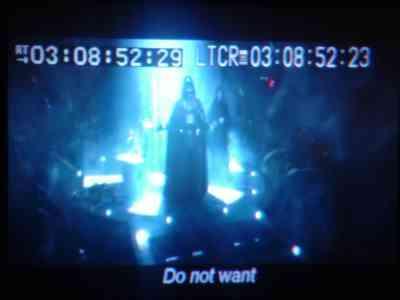
Throughout the latter half of the 2000s, pictures of Engrish became widespread on various internet humor sites like eBaumsworld[3], CollegeHumor[4], FAILBlog[16], FunnyTypo[6] and ChairmanLOL[5], as well as photo-sharing communities like Flickr[7] and Reddit.[8]
Notable Examples









Search Interest
External References
[2] Engrish – Engrish.com
[3] eBaumsworld – The Best Of Engrish Gallery
[4] CollegeHumor – ENGRISH STUFF
[5] Chairman LOL – Funny Engrish Translations
[6] FunnyTypos – English & Typos
[7] Reddit – Overwhelming Display of Engrish
[10] FARK – Top 100 examples of Video Game Engrish of all time
[11] Yahoo Groups – The Official Engrish Club
[12] Lumine – Life Through a Lens
[13] Lake Evendim – Lord of the Rings in Engrish
[14] Weird Asia News – Engrish Signs, Shirts and Products
[15] TranslationParty.com – Translation Party
[16] FAILBlog – Engrish Funny

